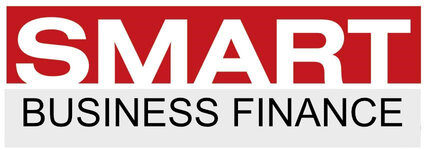Both types of facility enable a business to release cash early from funds tied up in both existing and ongoing sales ledger balances. There are, however, some key differences:-
Invoice Factoring
This type of facility is generally disclosed (but see Confidential Factoring below) – meaning that the factor’s involvement is shown on each invoice issued to customers with a request to pay the factor to a bank account in the factor’s name.
In addition, every invoice is assigned to the factor individually, enabling the factoring company to run their own sales ledger which mirrors that of the client. When funds are paid against invoices, the factor updates their ledger accordingly. This, coupled with the fact that invoices are verified by the factor (usually by telephone from the factoring company), means they are very close to the debts owed.
It is usual for the factoring company to offer some type of credit control alongside their ledger management, which makes it ideal for owner-managed businesses who lack resources to cover this aspect of financial management.
Because this type of facility is less risky to the funder than Invoice Discounting, the funder can sometimes be more flexible in terms of levels they are prepared to advance (ie the prepayment percentage against each invoice). It is also more common for Invoice Factoring to feature when the debt is not straight forward “sell and forget”.
It is, however, normally more expensive than Invoice Discounting.
Invoice Discounting
This type of facility is usually confidential – ie the client’s customers are not aware of the funder’s involvement. There is no Notice of Assignment on individual invoices, although all monies collected from funded customers will be directed to a unique bank trust account in the client’s name.
Rather than individual invoices being assigned, the client merely advises the funder of daybook totals when invoices are assigned. The daily management of sales ledger and credit control are left entirely with the client. Within two weeks of each month-end, a reconciliation of sales ledger balances is completed by the client following which any adjustments and reserves are set for the next month’s operation.
There are more stipulations for this type of facility (generally the client should be well-established with a good balance sheet net worth and able to produce timely management accounts and undertake their own credit control).
On the flip side, this type of facility is generally more cost-effective.
Other considerations
Sometimes it is not appropriate for a ledger to be factored due to a high number of customers and/or invoices. In this case, some funders will offer invoice discounting on a disclosed basis (Disclosed Invoice Discounting). This operates in the same way as Invoice Discounting, but a Notice of Assignment wording will appear on each invoice. The latter point will ensure the funder is offered more protection in the event of a situation where they are reliant on collecting out the ledger in the event of the client’s failure.
Another hybrid product is Confidential Factoring. This type of product is only offered by a small number of funders. It is like factoring in that a ledger is operated by the funder, but no Notice of Assignment wording appears on the invoice. In addition, statements are issued in the client’s name to their customers and credit control is also undertaken in the client’s name.
Confidential Factoring tends to have a premium price on a normal facility but is ideal for a business which is striving to obtain an Invoice Discounting facility within the next year or so (pending a period of profit retention and improving financial controls) and does not want to disclose the involvement of a funder to its customers.
As always, here at Smart Business Finance we are happy to offer free, impartial advice on any aspect of invoice finance.


